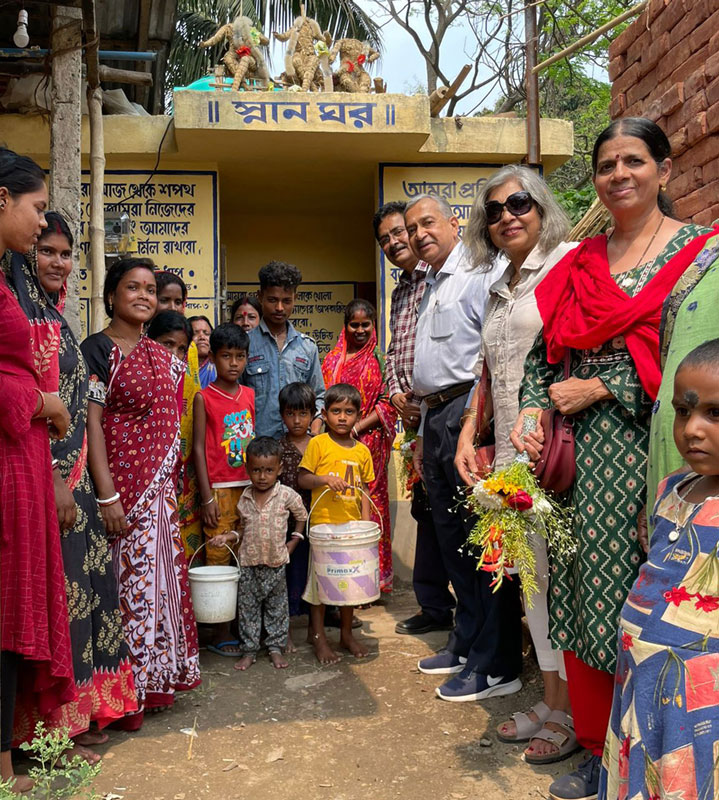Over 500 households in villages across West Bengal are now complete with toilets, thanks to a global grant project of RC Calcutta Chowrenghee, RID 3291, along with international partner RC New York Metro City, USA, and TRF. “Open defecation was rampant in the villages, and women and girls particularly were at danger, as this made them vulnerable to health risks and gender-based violence, and affected their dignity and self-respect,” says Vikram Tantia, Foundation Committee chair of the host club. Hence the club decided to install toilets in individual houses in these villages.

Many hamlets are situated 100–200km from Kolkata, in the Sundarbans, Kultali, Magrahat, Bishnupur, Rajpur and Howrah. “When we performed the ‘needs assessment’ as per TRF norms, we realised that there was a pressing need for bathrooms too. Women and girls were bathing in the open pond. So we added community bath facilities and tube wells to our projects in those villages,” he says. The bath stations, each with two bathrooms, will safeguard the dignity of women, and water will be sourced from the tube wells. The total project cost was $212,000 which was released by the Foundation in two phases. It helped provide 500 toilets, 19 community bath stations and 28 tube wells. Begun in 2019, and overcoming various challenges during Covid, the project was completed in July 2024. “This work now benefits around 20,000 people across 17 villages”.
RID 3170 PDG Ganesh Bhat, during one of his visits to the project site as TRF’s technical cadre member, suggested each village build a corpus for the maintenance of public facilities such as the bath stations and tube wells. At a meeting in one of the villages, he asked the women if they can afford to contribute ₹1 every day, and “they readily agreed.” Thus was born the Har Ghar Har Din Ek Rupai scheme where every household contributes ₹1 daily to build a corpus of at least ₹25,000 a year. On an average each village has around 80 houses. “This fund can make the project self-sustaining, taking care of minor repairs and regular upkeep of the common facilities,” says Bhat. Bank accounts were opened in the villages to deposit the corpus funds.
To discourage manual scavenging, Bhat, a civil engineer himself, suggested twin pits to be constructed to hold the human waste from the toilets in the households. PVC valves were fitted between the two pits to transfer sewage from one pit to another when it fills up. The villagers were taught to keep the toilets in their households clean.
RC Calcutta Chowrenghee outsourced training and supervision of the projects to Green EDP Promotion and Services, an organisation expert in WASH. Rotary Community Corps and Rotakids, a Rotary club for the village children, were installed in the villages and the members were assigned the task of supervising the facilities. The RCC members were taught to operate bank accounts, repair pumps and fix taps, and other maintenance work, says Tantia. The club organised awareness sessions on environment, hygiene and sanitation for the villagers during the project tenure.





